Search Articles
Browse Content
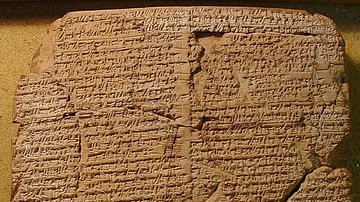
Article
Ancient Mesopotamian Ghost Spell
Medicine in ancient Mesopotamia was based on the belief that illness was caused by supernatural agencies and, although medicines were given and injuries treated, magical spells and incantations were also understood as effective. Among these...

Article
The Textile Industry in the British Industrial Revolution
During the Industrial Revolution (1760-1840), textile production was transformed from a cottage industry to a highly mechanised one where workers were present only to make sure the carding, spinning, and weaving machines never stopped. Driven...
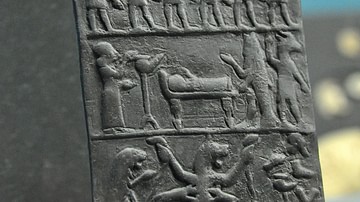
Article
Burial in Ancient Mesopotamia
Burial in ancient Mesopotamia was the practice of interring a corpse in a grave or tomb while observing certain rites, primarily to ensure the passage of the soul of the deceased to the underworld and prevent its return to haunt the living...
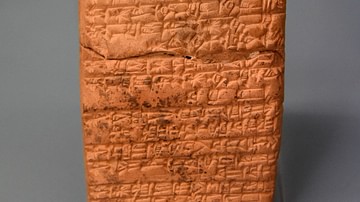
Article
Shulgi and Ninlil's Barge
Shulgi and Ninlil's Barge is a Sumerian poem dated to the reign of Shulgi of Ur (2029-1982 BCE) celebrating the caulking of the barge of the goddess Ninlil, consort of the sky god Enlil, and the banquet held in the couple's honor by Shulgi...

Article
Interview: Ave Caesar! Romans, Gauls and Germanic tribes on the Banks of the Rhine
In ancient times, the Rhine was a major communications artery stretching right across Europe, allowing trade, contacts, and cultural exchange between different regions. Then as now, the river was of immense importance strategically for controlling...
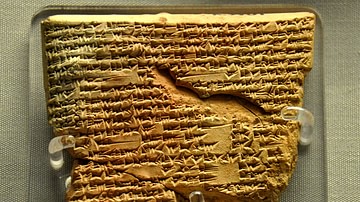
Article
Sargon and Ur-Zababa
Sargon and Ur-Zababa is a Sumerian poem, date of composition unknown, relating the rise to power of Sargon of Akkad (r. 2334-2279 BCE), founder of the Akkadian Empire. The work is classified as a Mesopotamian folktale, relying on motifs such...
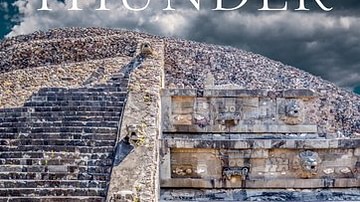
Article
Medieval Climate Anomaly in the Americas
To climatologists, the period of seven to twelve centuries ago was known as a "Climate Anomaly" or a "Warm Period" (800-1300 CE). To archaeologists, it was a time of great change, a period when cultural patterns were put into place that lasted...
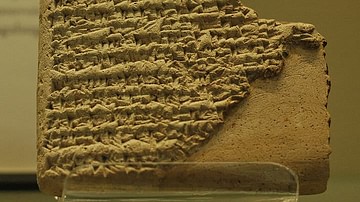
Article
The Legend of Sargon of Akkad
The Legend of Sargon of Akkad (c. 2300 BCE) is an Akkadian work from Mesopotamia understood as the autobiography of Sargon of Akkad (Sargon the Great, r. 2334-2279 BCE), founder of the Akkadian Empire. The earliest copy is dated to the 7th...
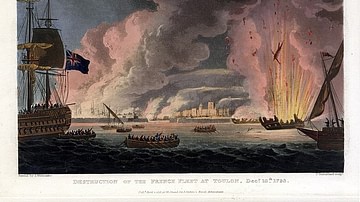
Article
Siege of Toulon
The Siege of Toulon (29 August to 19 December 1793) was a decisive military operation during the French Revolutionary Wars (1792-1802), conducted by a French Republican army to retake the port city of Toulon from rebels, who were supported...
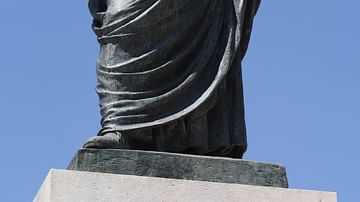
Article
Horace's Epistles
Horace's Epistles are a series of letters, providing sage advice to various friends. Quintus Horatius Flaccus, better known as Horace (65-8 BCE) wrote 20 letters around 20-19 BCE, collected in Epistles I, while Epistles II, most likely written...